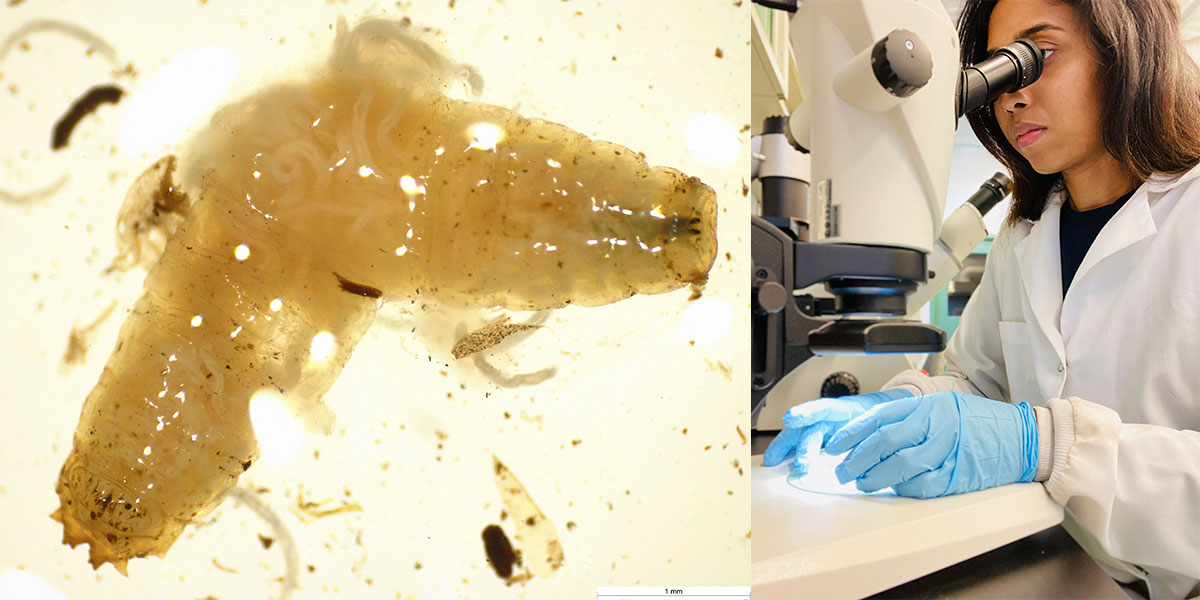
There are two active research projects regarding nematodes at Olds College Centre for Innovation. The first is on assessing the comparative effectiveness of a native entomopathogenic nematode (EPN) species in contrast to two commercially available EPN strains. The second project involves the isolation and taxonomic characterization of plant parasitic nematodes from diverse soil samples, primarily relying on the nematode morphology. Through these efforts, researchers aim to contribute to the development of sustainable pest management strategies and the promotion of ecologically sound agricultural practices.
An entomopathogenic nematode is a microscopic worm that lives in the soil and eats insects such as root maggots and black cutworms. Since root maggots and black cutworms can negatively affect major field crops such as canola, peas and wheat, finding nematodes that feed on these pests would be very beneficial to producers. The research team is actively testing a native strain similar to commercially available entomopathogenic nematodes found locally in Alberta, and trying to figure out if this particular strain of nematode can be used in future pest management applications in the province to help minimize pests in major crops. This lab work and experiments are geared towards finding a biological pest control with beneficial nematodes.
Funders/Partners: Alberta Canola, Mitacs, RDAR